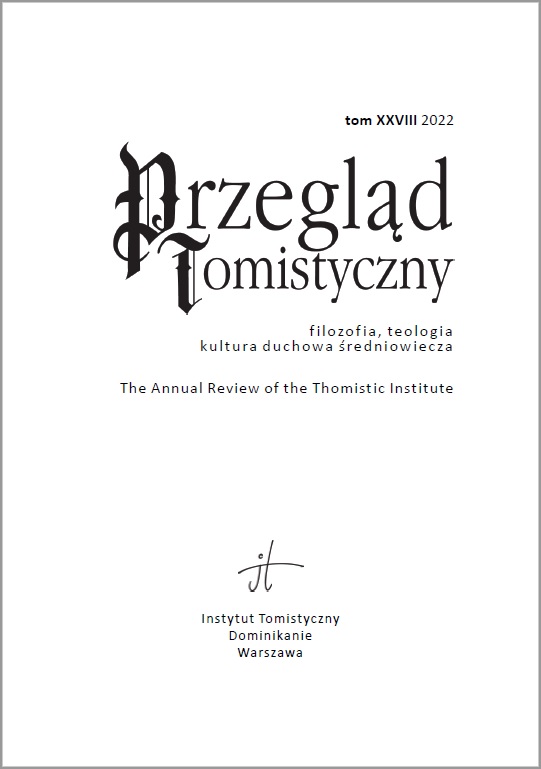DAMIAN MRUGALSKI OP, The Encounter Between Greek Philosophy and Biblical Thought in Hellenistic Judaism and the Birth of Christology

Tom XXVIII: 2022
Filozofia — Teologia— Kultura duchowa średniowiecza
ISSN 0860-0015
e-ISSN 2544-1000
SUMMARY
In the 20th century, there was a dispute between Protestant and Catholic scholars over the Hellenisation of Christianity, or rather the evaluation of the phenomenon of Hellenisation. According to Adolf von Harnack, Hellenisation destroyed or deformed the essence of Christianity. According to Joseph Ratzinger, on the contrary: the encounter between biblical thought and Greek philosophy helped to express the essence of Christianity adequately. Ratzinger has devoted many works to the polemic against Harnack’s thesis, pointing out that Hellenisation took place, not only after the death and resurrection of Jesus, but much earlier. However, Ratzinger does not cite many examples and arguments as confirmation of his thesis. This article is a kind of supplement to Ratzinger’s thesis. Its author shows how certain theoretical solutions arose within Hellenistic Judaism, i.e. in the time before the birth of Jesus, and how these were then used by Christians in their Christological argumentation. It was the philosophical interpretation of the Pentateuch made by Philo of Alexandria, but which also appears in the Bible itself (especially in the Sapiential Books), that helped the Fathers of the Church to perceive a pre-existent Logos in the theophanies of the Old Testament. This philosophical interpretation also gave rise to the concept of gaeneratio aeterna, i.e. the argument in favour of the eternal generation of the Son by the Father.
